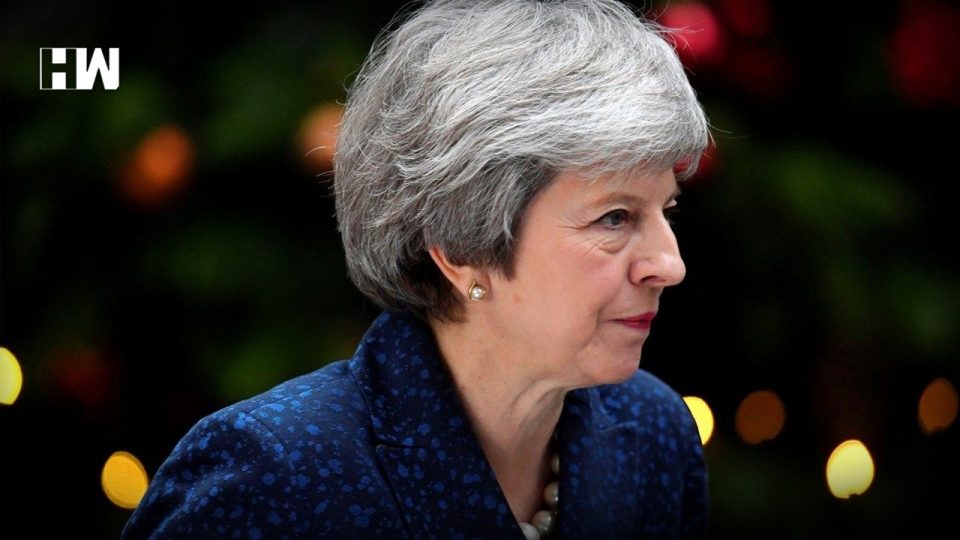London | Embattled British Prime Minister Theresa May on Tuesday asked MPs to give her “some time” to complete negotiations with the European Union (EU) in order to bring back a deal for a Parliament vote and deliver Brexit in time for the March 29 deadline.
In an important update to the House of Commons, May called for patience as the talks with the EU were at a “crucial stage” and promised MPs a “meaningful vote” over a reworked withdrawal agreement.
“Having secured an agreement with the European Union for further talks, we now need some time to complete that process. When we achieve the progress we need, we will bring forward another meaningful vote,” she said in her statement.
“The talks are at a crucial stage. We now all need to hold our nerve to get the changes this House requires and deliver Brexit on time,” she said.
May said that by getting the changes required to the controversial Irish backstop the insurance policy against a hard border between the UK and EU member-country Ireland she was confident that she could bring back a deal more acceptable to MPs, who had voted down her withdrawal agreement in a historic defeat last month.
“We can deliver for the people and the communities that voted for change two and half years ago and whose voices for too long have not been heard. We can honour the result of the referendum,” she said, in reference to the June 2016 referendum in favour of Britain’s exit from the EU.
In the event that a more widely acceptable withdrawal agreement has not been achieved by February 26, British MPs will get the chance to vote on various Brexit options on February 27.
“If the government has not secured a majority in this House in favour of a withdrawal agreement and a political declaration, then the government will on February 26 make a statement and table an amendable motion relating to the statement; and a minister will move that motion on February 27, thereby enabling the House to vote on it, and on any amendments to it, on that day,” May said, in an attempt to curb rebellion from the divided factions within Parliament over the next steps as the Brexit deadline nears.
Opposition Labour Party leader, Jeremy Corbyn, accused the government of “recklessly running down the clock” in an effort to “blackmail” MPs into backing May’s deal.
“The Prime Minister comes before the House with more excuses and more delays,” he said.
With just 45 days left before Britain is set to formally leave the 28-member economic bloc, the EU and the UK have been holding further discussions in an attempt to strike an agreement over the nature of the exit to avert a chaotic no-deal Brexit.
The EU has reiterated that it has no plans of reopening the legally-binding withdrawal agreement, or so-called divorce bill, which had been reached with the UK at the end of last year but rejected by MPs in the Commons. This means little likelihood of any substantial change to the Irish backstop clause, which Brexiters fear will keep the UK tied to EU rules even after Brexit.
Speaking after a dinner with Brexit Secretary Steve Barclay on Monday night, EU chief Brexit negotiator Michel Barnier said the latest round of talks had been “constructive”, but added it was “clear from our side we’re not going to reopen the withdrawal agreement, but we will continue our discussions in the coming days”.
A statement from the UK’s Department for Exiting the EU said Barclay and Barnier had agreed to further talks and their teams would continue to work in the meantime “on finding a way forward”.
The UK’s Brexit minister has been joined by Cabinet Office Minister David Lidington in Strasbourg on Tuesday for further talks with Members of the European Parliament (MEPs) and a meeting with the European Parliament’s Brexit negotiator Guy Verhofstadt.
Later this week, the UK is set for a parliamentary debate on the next steps for Brexit in the Commons on Thursday. It is expected to be followed by some votes, which may not be binding but used to gauge the mood of the House of Commons.
The so-called “meaningful vote” on a final withdrawal agreement is not expected before next month, and may not take place before a key EU summit on March 21 just a week before the Brexit deadline of March 29.
As an independent media platform, we do not take advertisements from governments and corporate houses. It is you, our readers, who have supported us on our journey to do honest and unbiased journalism. Please contribute, so that we can continue to do the same in future.

